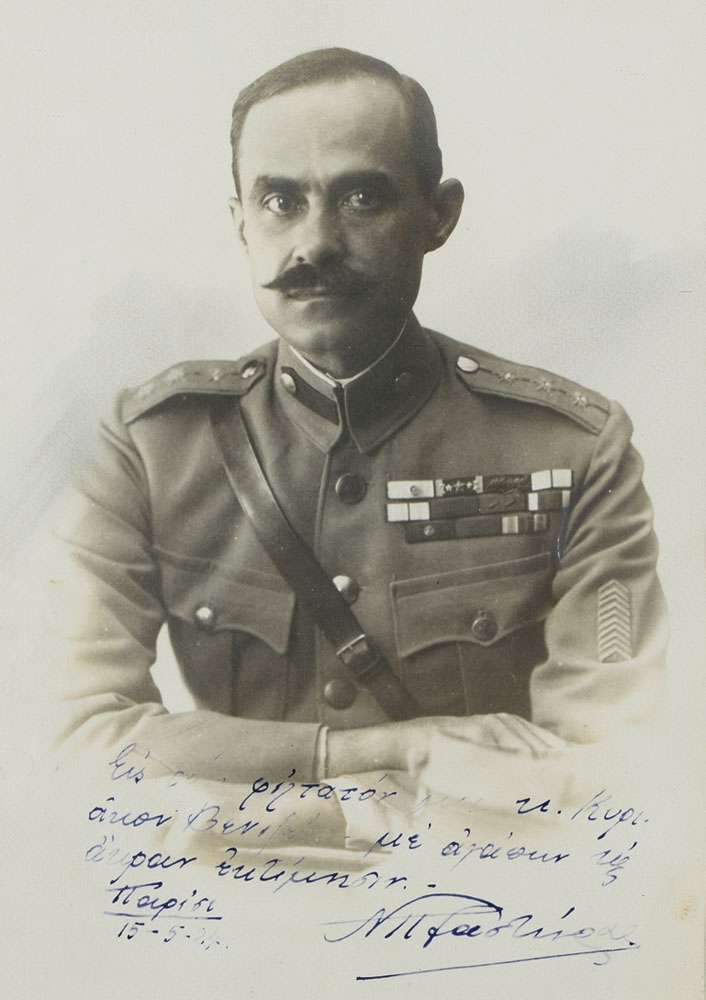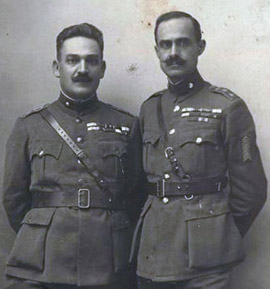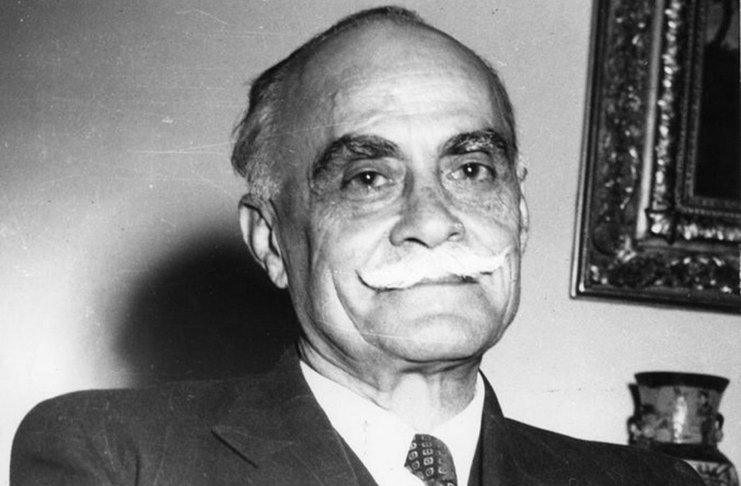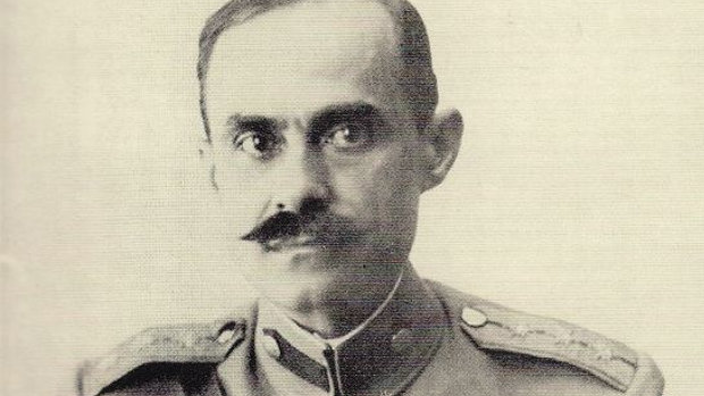Nikolaos Plastiras was a Greek general and politician, who served as Prime Minister of Greece twice.
A distinguished soldier known for his personal bravery, he became famous as “The Black Rider” during the Greco-Turkish War of 1919–1922, where he commanded the 5/42 Evzone Regiment.
To mark the occasion of his birth, we take a look back at his incredible life.
Early Life:
Nikolaos Plastiras was born in Vounesi (today Morfovouni) of Karditsa on November 4, 1883.
After graduating from high school, he enlisted as a volunteer in the army with the rank of Dean in 1903 and took part in the Macedonian Struggle.
Plastiras actively participated in the “Military League,” which brought Eleftherios Venizelos to power.
In 1912, after his graduation from the Military School in Corfu, he participated in the Balkan Wars and was distinguished for his valour. His fellow soldiers nicknamed him “the Black Rider.”

During the National Schism of 1916, he supported Venizelos and participated in the National Defense Movement.
Greco – Turkish War:
In 1919, Plastiras commanded the 5/42 Evzone Regiment in Ukraine, supporting the Russian “White Army” against Lenin’s Bolsheviks.
After the failure of the operation, Plastiras was sent to the Asia Minor Front. The Turks named him “Black Pepper” (because of his dark skin) and his units “Satan’s Army.”
Plastiras was distinguished during the Turkish counterattack in Sangario, which caused the collapse of the Front. He led his unit to Cesme and from there to Chios, while rescuing thousands of refugees who followed him.
The Disaster in Asia Minor in 1922 caused the uprising of the army in Chios and the creation of a “Revolutionary Committee” under the command of Plastiras, Gonatas and Fokas.

The Committee demanded the dethronement of King Constantine and the resignation of the Gounaris government. Constantine resigned in order to place his son George II on the throne, and Krokidas became the new Prime Minister.
Later Years:
Plastiras brought Venizelos back from exile, in order to be the main negotiator of the terms with Turkey, which were settled during the Treaty of Lausanne (1923).
The Revolutionary Committee successfully quenched the pro – royalty coup of Gargalidis and Leonardopoulos. Believing that a soldier’s role is in a bunker and not in a place of power, Plastiras declared that elections would be held in December 1923. The new government paved the way to the Second Greek Republic. On that same day, Plastiras resigned from the army.
Until 1933, Plastiras did not participate in politics and lived between Greece and Italy. Then, the anti – Venizelist party “United Opposition” won the elections and Plastiras tried to organise a coup that failed miserably, as he was not even supported by Venizelos.

In the danger of being called treasonous, he went via the Dodecanese to Beirut and finally France. Although he was not prosecuted for the coup of 1933, he was sentenced to death with Venizelos in absentia for the revolutionary movement of 1935.
Death and Legacy:
After the liberation by the Germans, Plastiras became Prime Minister in 1945 as a widely accepted figure. During the Civil War he did not participate in politics, but instead criticised both the Left and the Right Wing for their vile contributions to the schism.
After the end of the Civil War in 1951, he became prime minister forming a coalition government. During the elections of 1952, he lost.
Plastiras died shortly after, having suffered from many heart attacks and strokes in the previous years.
Source: Greece.com.


